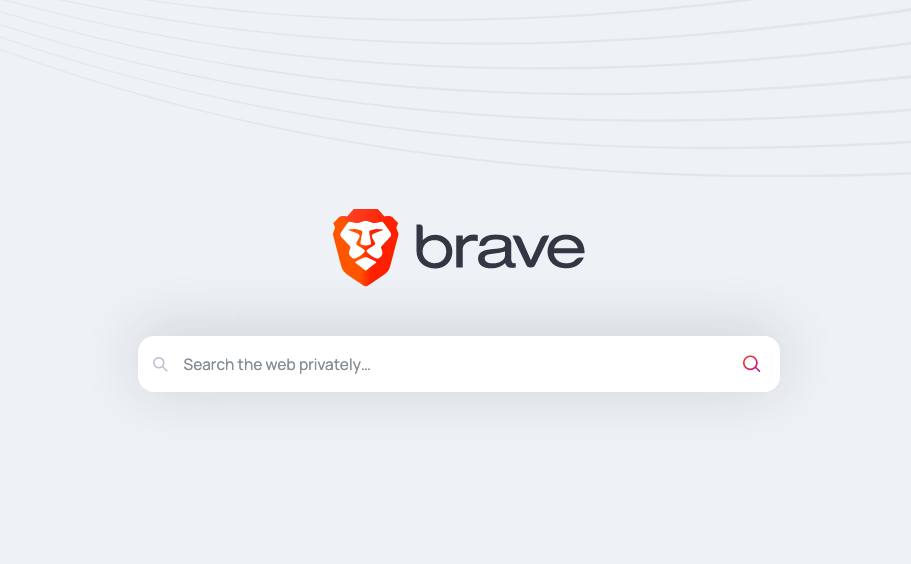11 Private Search Engines That Respect Your Privacy
In today's world, privacy has become a major concern for internet users. With the rise in data breaches and hacking attempts, individuals are seeking out more secure methods of browsing the internet. One such method is to use private search engines that respect your privacy.
These search engines are designed to keep your search queries private and secure, and they do not track your search history or collect your personal information. In this article, we will explore seven private search engines that respect your privacy.
1- DuckDuckGo
DuckDuckGo is a popular private search engine that has gained popularity in recent years. The search engine does not track user activity or collect personal information. DuckDuckGo has a clean and simple interface, which makes it easy to use.
The search engine also offers a range of features, such as Instant Answers, which provide quick answers to search queries, and Bangs, which allow users to search on other websites directly from DuckDuckGo.
Features:
- Private search that does not track user activity or collect personal information.
- Instant Answers feature that provides quick answers to search queries without the need to click on a website.
Pros:
- Does not track user activity or collect personal information, providing a private search experience.
- Instant Answers feature provides quick answers to search queries without the need to click on a website.
Cons:
- Search results may be limited compared to other search engines, as it does not collect as much data as its competitors.
- DuckDuckGo may not be as well-known as other search engines, which may make it less accessible to some users.
2- Startpage
Startpage is another private search engine that has gained popularity in recent years. The search engine does not track user activity or collect personal information. Startpage offers anonymous browsing, which means that the websites you visit through the search engine will not be able to track your activity. The search engine also offers a range of features, such as Proxy Browsing, which allows users to browse the internet anonymously, and Privacy OneBox, which allows users to search for information without leaving any traces.
Features:
- Private search that does not track user activity or collect personal information.
- Offers "Anonymous View" feature that allows users to browse websites anonymously.
Pros:
- It does not track user activity or collect personal information, providing a private search experience.
- Offers "Anonymous View" feature that allows users to browse websites anonymously.
Cons:
- Search results may be limited compared to other search engines, as it uses Google's search index without the personalization features.
- StartPage's user interface may not be as visually appealing as other search engines.
3- Searx
Searx is a free and open-source private search engine that is designed to protect user privacy. The search engine does not track user activity or collect personal information. Searx allows users to choose from a range of search engines, such as Google, Bing, and Yahoo, and it combines the search results to provide users with the best possible results. The search engine also offers a range of features, such as Plugins, which allow users to customize their search experience, and Tor integration, which allows users to browse the internet anonymously.
Features:
- Open-source search engine that can be self-hosted for added privacy.
- Provides users with the ability to pick which search engines they want to use.
Pros:
- Open-source search engine that can be self-hosted for added privacy.
- Provides users with the ability to decide which search engines they want to use.
Cons:
- Searx may not have as many features as other search engines, which may limit its appeal to some users.
- Self-hosting Searx requires some technical knowledge and effort.
4- Qwant
Qwant is a private search engine that is designed to protect user privacy. The search engine does not track user activity or collect personal information.
Qwant offers a range of features, such as News and Social, which provide users with news articles and social media posts related to their search queries. The search engine also offers a range of filters, such as Time and Category, which allow users to refine their search results.
Features:
- Private search that does not track user activity or collect personal information.
- Offers "Qwick Search" feature that allows users to access quick results on selected topics.
Pros:
- It does not track user activity or collect personal information, providing a private search experience.
- Offers "Qwick Search" feature that allows users to access quick results on selected topics.
Cons:
- Search results may be limited compared to other search engines, as it is a smaller search engine that may not have as much data as larger competitors.
- Qwant may not have as many features as other search engines, which may limit its appeal to some users.
5- Swisscows
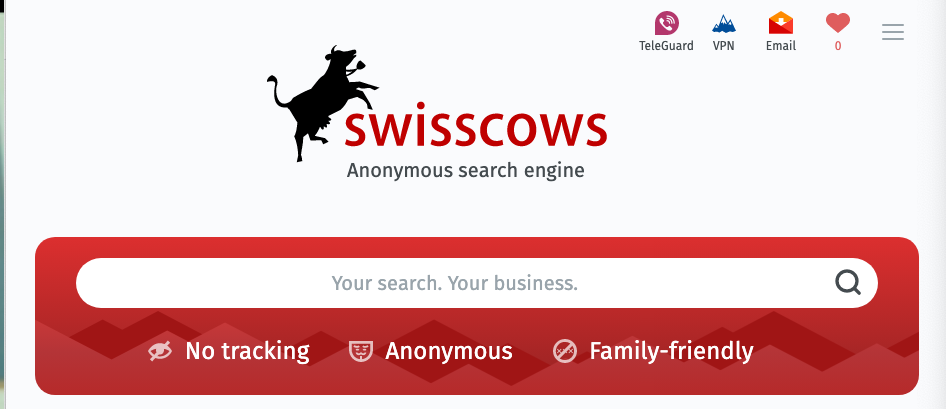
Swisscows is a private search engine that is designed to protect user privacy. The search engine does not track user activity or collect personal information. Swisscows uses semantic technology, which means that it provides users with the most relevant search results based on their search queries. The search engine also offers a range of features, such as Categories, which allow users to refine their search results, and Instant Answers, which provide quick answers to search queries.
Features:
- Private search that does not track user activity or collect personal information.
- Uses semantic map technology to provide more accurate and relevant search results.
Pros:
- It does not track user activity or collect personal information, providing a private search experience.
- Uses semantic map technology to provide more accurate and relevant search results.
Cons:
- Swisscows may not have as many features as other search engines, which may limit its appeal to some users.
- Some users may find the user interface to be less user-friendly compared to other search engines.
6- Kagi
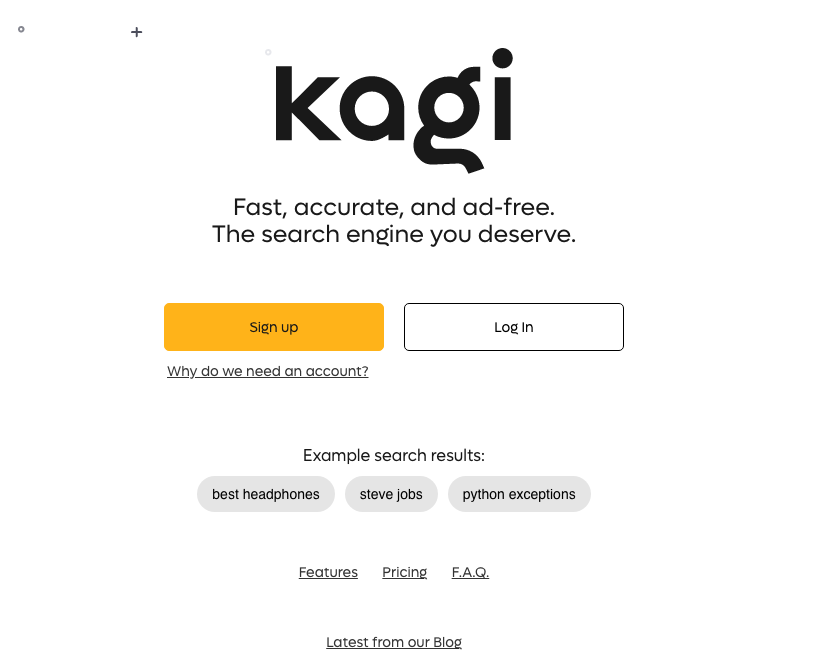
Kagi is a private search engine that is designed to protect user privacy. The search engine does not track user activity or collect personal information.
Kagi offers a range of features, such as Thumbnails, which provide users with a preview of the website before they click on it, and a Private Mode, which allows users to browse the internet anonymously. The search engine also offers a range of filters, such as Date and Language, which allow users to refine their search results.
Features:
- Private search that does not track user activity or collect personal information.
- Offers a unique "preview card" feature that allows users to view website previews without visiting the site.
- Offers a Mozilla Firefox extension
Pros:
- Does not track user activity or collect personal information, providing a private search experience.
- Offers a unique "preview card" feature that allows users to view website previews without visiting the site.
Cons:
- Peekier may not have as many features as other search engines, which may limit its appeal to some users.
- Some users may find the preview card feature to be less useful or distracting.
7- Gibiru
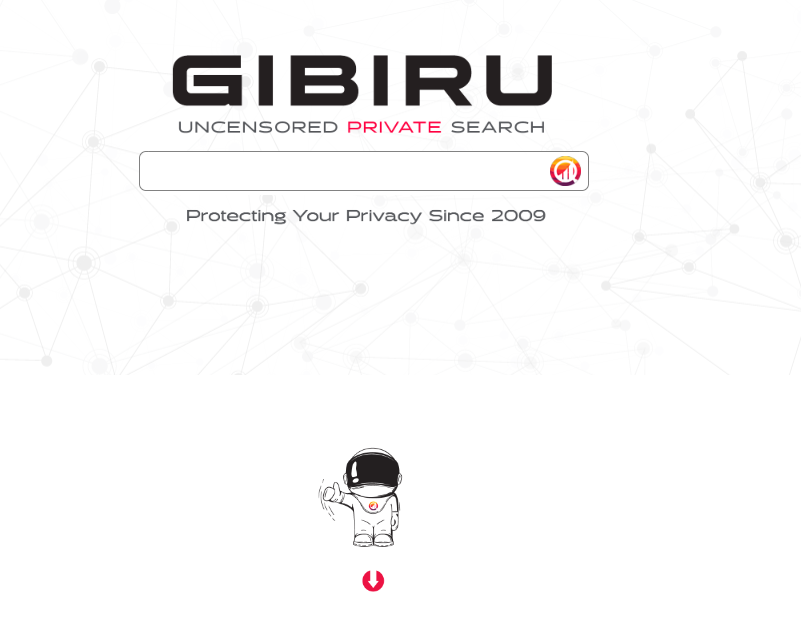
Gibiru is a private search engine prioritizing user anonymity and uncensored search results. It uses peer-to-peer technology and SSL encryption to enhance user privacy and security. Gibiru's search results are powered by Google, and it offers a Pro version with VPN and increased anonymity features.
Keep in mind that it does not work in many countries, and you may need a VPN to use it.
Features:
- Uses peer-to-peer technology to provide uncensored and unfiltered search results.
- Offers SSL encryption for enhanced user privacy and security.
Pros:
- Uses peer-to-peer technology to provide uncensored and unfiltered search results.
- Offers SSL encryption for enhanced user privacy and security.
Cons:
- Gibiru's search results may not be as accurate as other search engines, as it does not have the same level of indexing and data as larger search engines.
- Some users may find Gibiru's user interface to be less user-friendly compared to other search engines.
- Does not work in many countries.
8- Brave Search
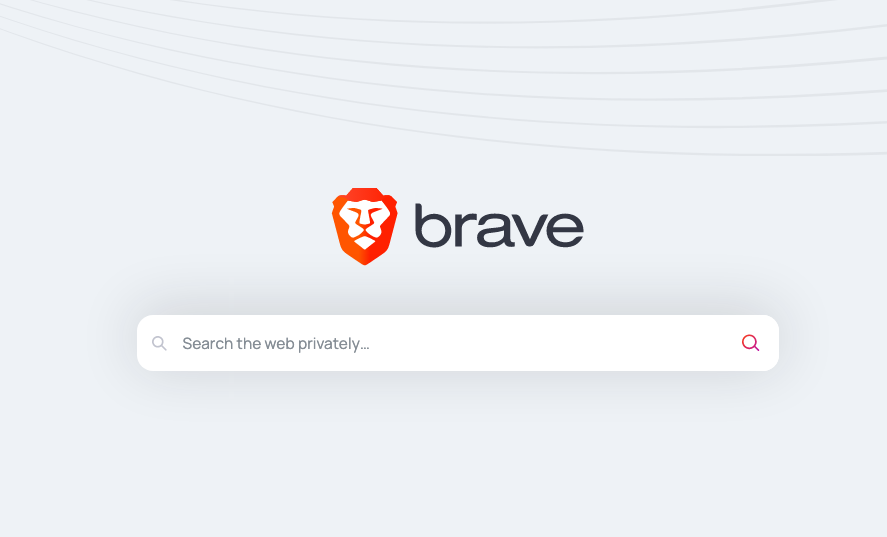
Brave Search is yet another product of the creators and maintainers of the Brave file browser. It does not track or keep your information, and it is accessible everywhere.
9- Openverse Search Extension
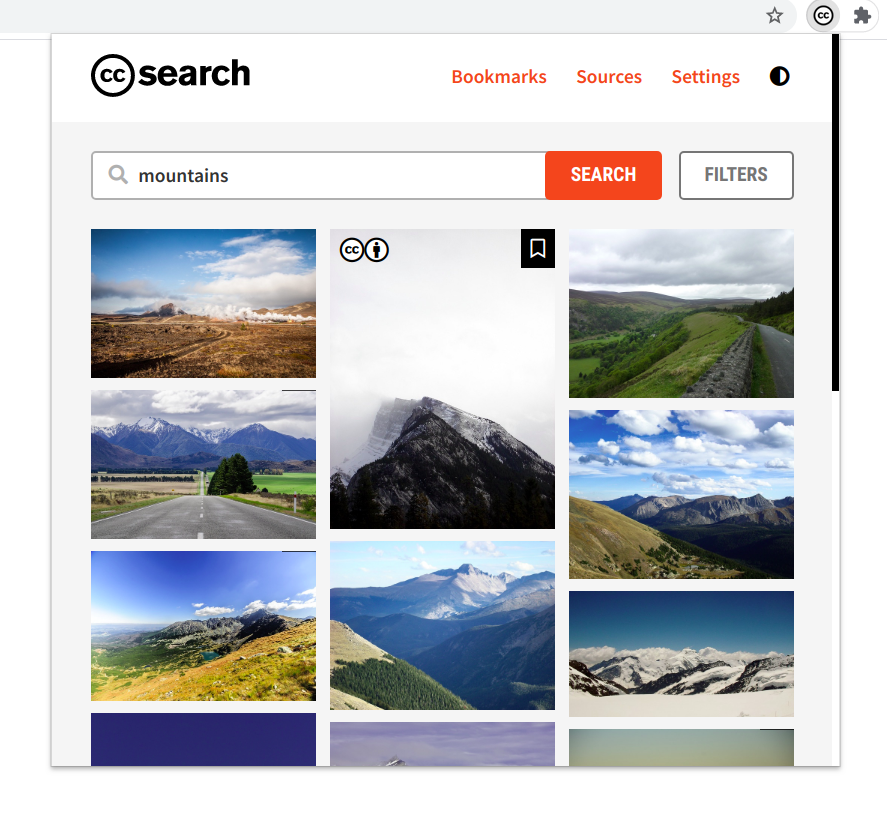
Openverse enables you to search and explore more than 600 million creative free stock video and audios and use for free.
You can use the Openverse extension which is a cross-browser extension that lets you search, filter, and use openly-licensed images, for Google Chrome and Mozilla Firefox.
10- Andi Search
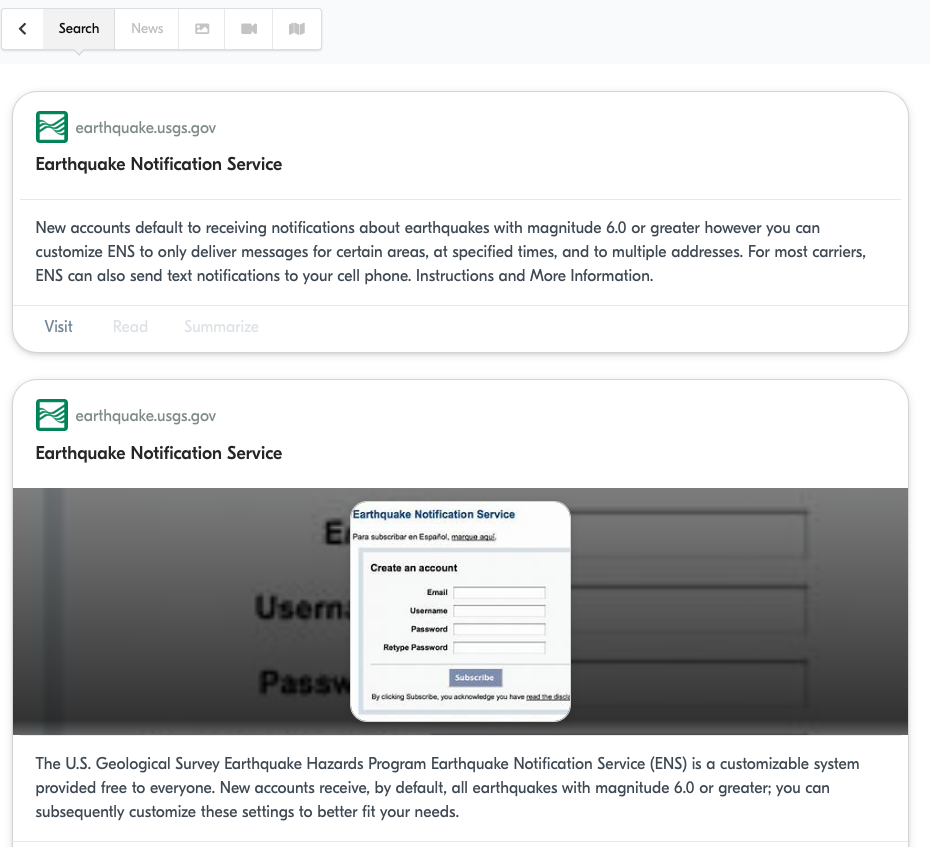
Andi search offers a unique way to search, find and recommend the best results for you. The interface is very similar to a chat and fairly easy to use.
11- DISCONNECT Search
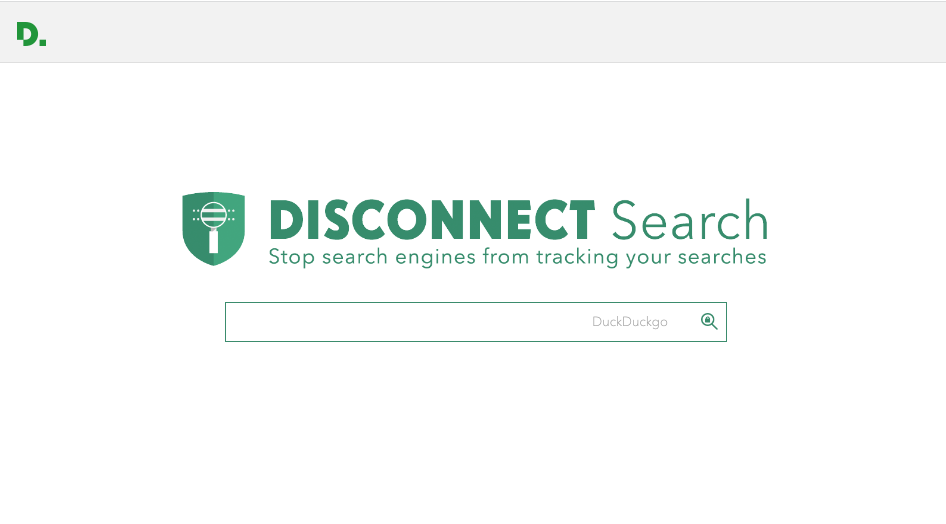
Disconnect Search is a specialized VPN that lets you search privately using your favorite search engine. It does not log searches, IP addresses, or any other personal info.
Conclusion
In conclusion, there are several private search engines available that prioritize user privacy and security. These search engines offer features such as private search, instant answers, and SSL encryption, among others.
However, some of these search engines may have limited search results or may not be as well-known as other search engines. It's important for users to weigh the pros and cons of each search engine and choose the one that best meets their needs. Overall, private search engines are a great option for those looking to protect their privacy and browse the internet more securely.

